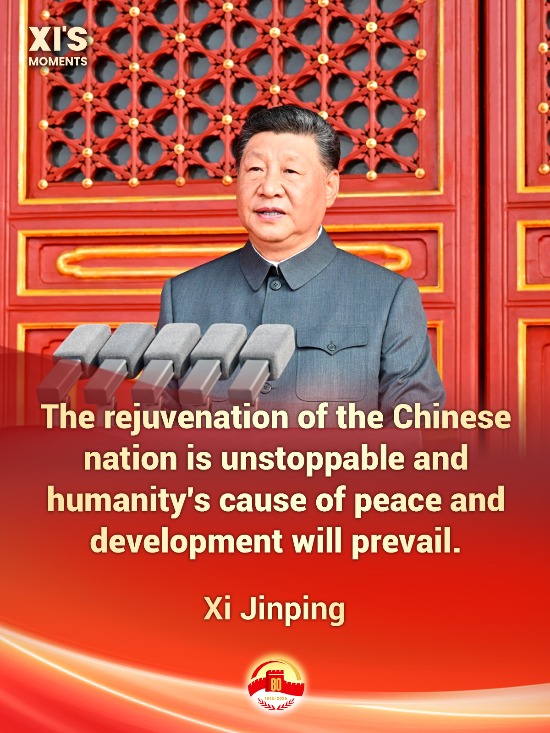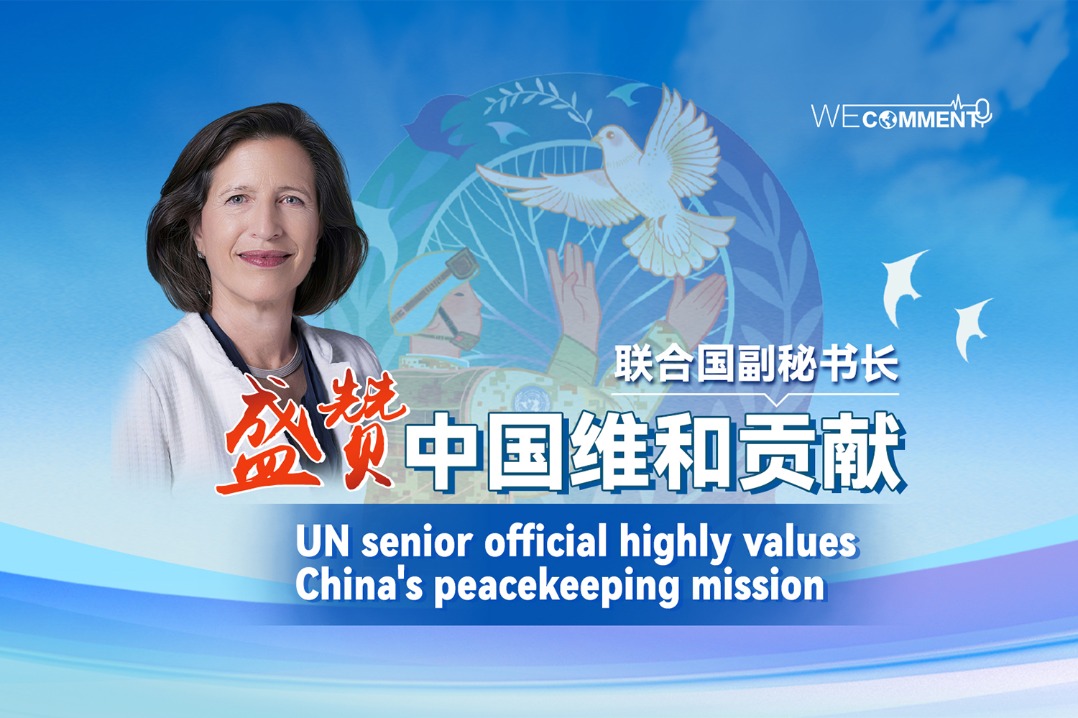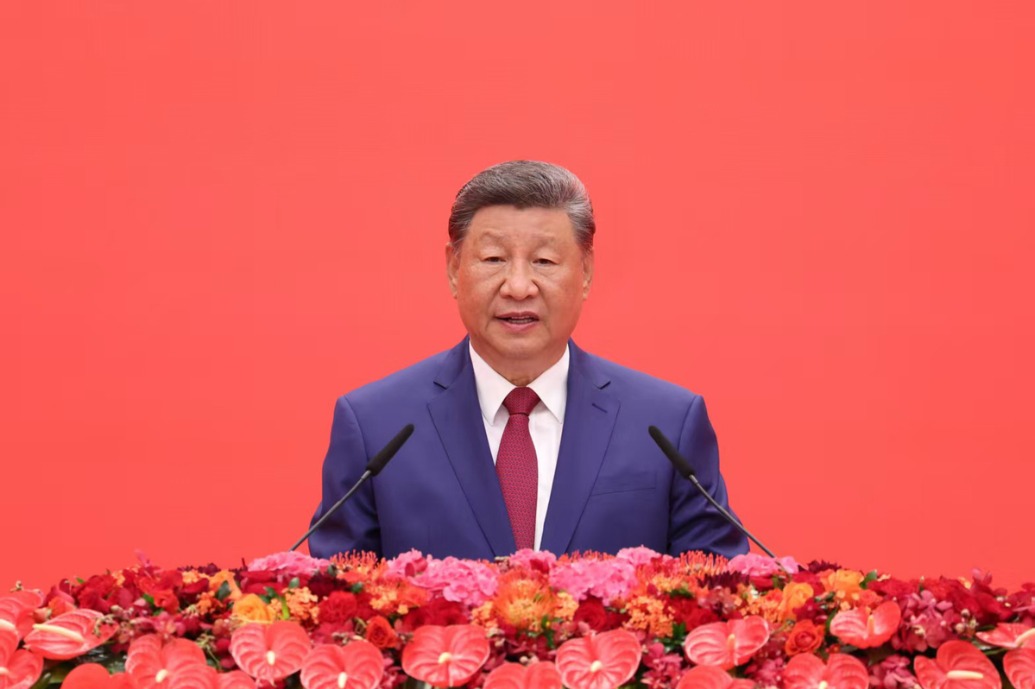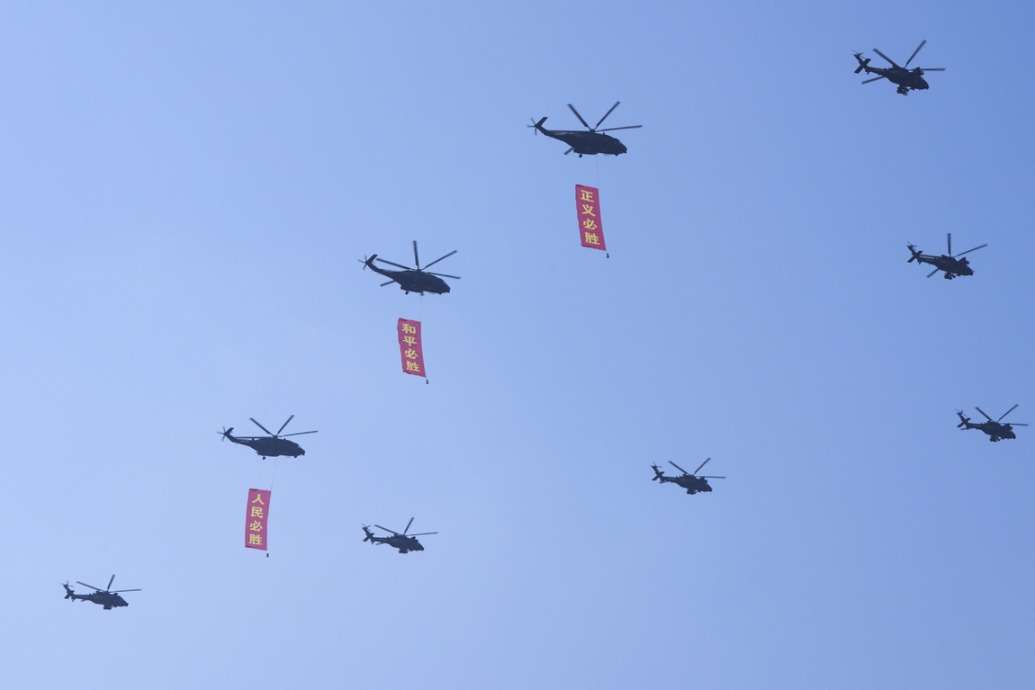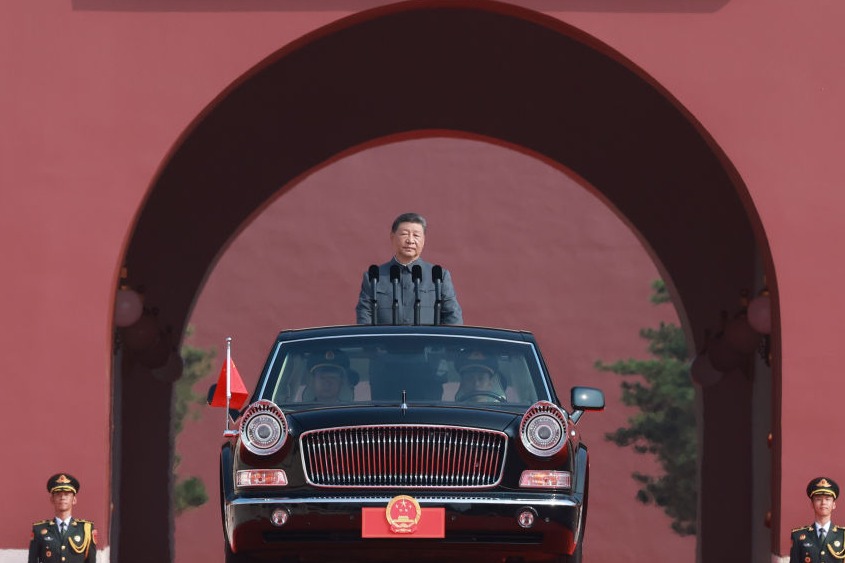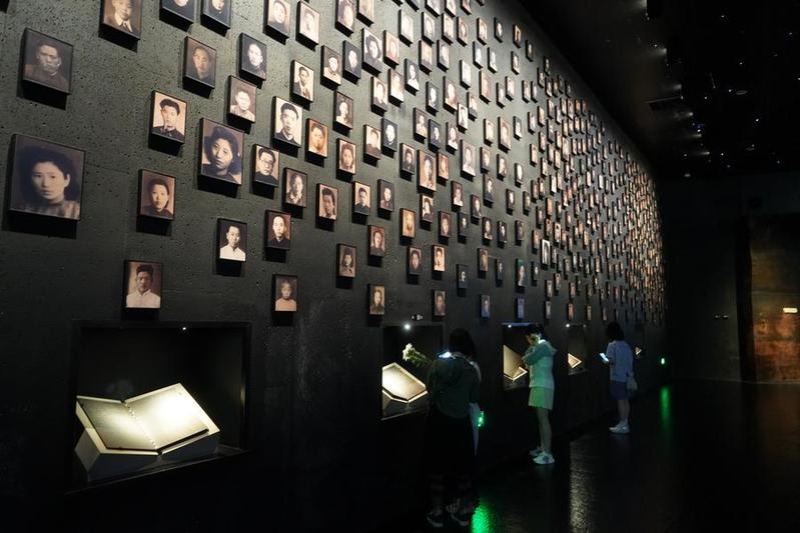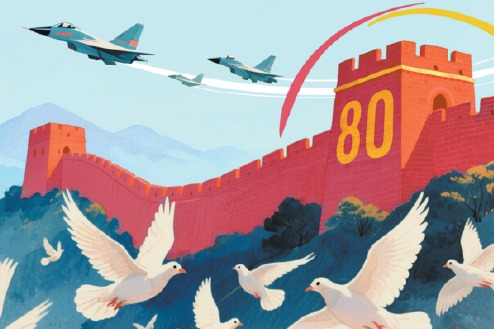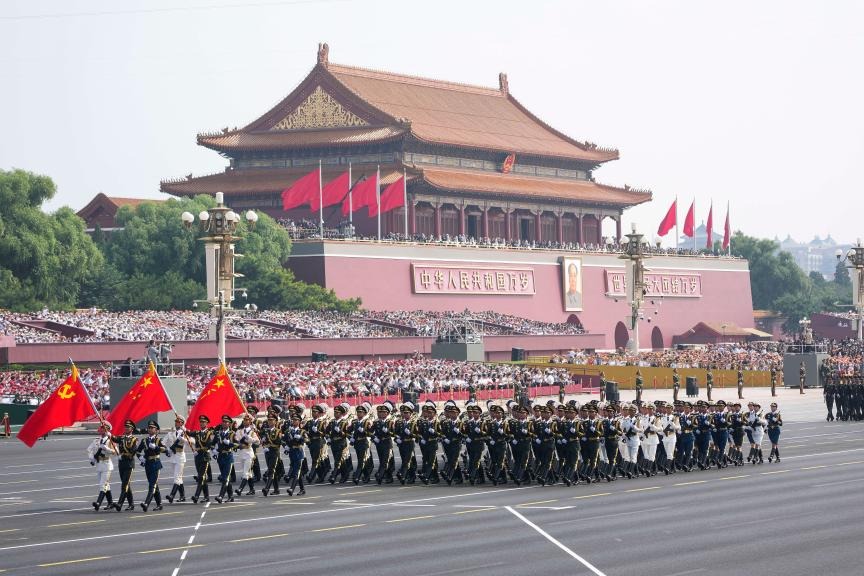Strong military helps maintain peace

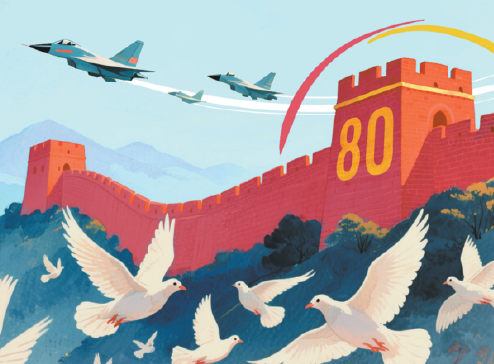
Editor's note: The Sept 3 military parade marked the 80th anniversary of the victory in the Chinese People's War of Resistance Against Japanese Aggression (1931-45) and the World Anti-Fascist War, with the participation of a UN peacekeeping contingent underscoring China's resolve to pursue peace and uphold the UN-centered international order. In an interview with China Daily, Huang Tao, director of the International Peacekeeping Training Center, College of International Studies, National University of Defense Technology, shared his views on China's peacekeeping mission and its significance. Excerpts follow:
Question: Through the Sept 3 military parade, in which a UN peacekeeping contingent from China took part, what message did Beijing convey to the international community?
Answer: The Sept 3 parade commemorated the victory in the Chinese People's War of Resistance Against Japanese Aggression and the World Anti-Fascist War. On the important occasion, the participation of a contingent of UN peacekeepers in the parade reflected the solemn commemoration of the victory, and demonstrated China's commitment to safeguard world peace.
China has always been a staunch supporter of the United Nations, and an upholder of multilateralism. And the UN, one of the greatest achievements of the post-World War II era, is the main platform for maintaining world peace and achieving fair global governance.
Q: What message did the parade, which displayed both peacekeepers and new weaponry, send out?
A: A peacekeeping contingent in a parade is not unprecedented. In the 2019 parade, marking the 70th anniversary of the founding of the People's Republic of China, a peacekeeping contingent took part for the first time.
The international landscape is rapidly evolving, especially because the Russia-Ukraine and Israel-Palestine conflicts have not yet been resolved. And the international community is anxious about the uncertainty over the world order.
In such a situation, people expect the UN to play a bigger role in restoring peace across regions. In this volatile situation, China has the responsibility to support the UN and its peacekeeping operations.
The "blue beret" symbolizes UN peacekeeping and embodies China's resolve to help maintain world peace. In the past 35 years, the Chinese military has participated in numerous UN peacekeeping operations, building bridges and roads, providing medical aid for war-stricken people, and protecting civilians.
Behind every blue beret is an expression of our will to maintain world peace and participate in global governance. In the parade, the blue berets and domestic equipment were displayed together, aligning our military capability with our commitment to peace. The message is clear: the development of China's military is to help maintain global peace.
Q: Have you ever personally participated in a peacekeeping mission? And are there any memorable peacekeeping stories you could share?
A: A few years ago, one of our graduates was deployed to a mission area in Africa as a military observer. During his assignment, a conflict erupted right at his camp. Anti-government forces clashed with government troops, cutting off supply lines. With no water and electricity, and limited food, conditions were extremely challenging at the camp.
So when local civilians, seeking help, approached the camp, they had to be told that the camp could no longer provide adequate food and shelter for them. This agitated the civilians and tensions ran high. At that moment, our graduate stepped forward to calm the people down, administered first aid to some of them, and guided them to the local aid station. The crisis was peacefully resolved. Later he found out that when he had gone out to help the people, a bullet pierced his room. Had he stayed in his room, he likely would have been shot.
On another occasion, while patrolling a site in Lebanon, our team came across Syrian refugee children sheltered in a home while their parents were working in the fields. The children ran out and were very happy to see us. When one of them said, "You should come and see us more often", I felt that the daily appearance of the UN peacekeepers at the place made a world of difference to them. At that moment, I realized our work had value. Although it was a small thing, it left a deep impression on me.
Q: What sort of peacekeeping operations do Chinese officers and soldiers primarily participate in?
A: UN peacekeeping operations began in 1948 during the Arab-Israeli War. Military observers were initially unarmed, tasked with monitoring the ceasefire through daily patrols, and serving as impartial witnesses. Later, as the conflict intensified, lightly armed peacekeepers were deployed.
The role of Chinese peacekeeping units differs from those of individual observers and officers. The mission of our observers, besides monitoring ceasefires, is to mix with the local people to gather information or provide them with medical and other help. Force is only a deterrent. It cannot truly resolve conflicts. Political solutions should always guide the design and deployment of UN peacekeeping operations.
China has established an 8,000-strong standby peacekeeping force, reflecting its determination to maintain global peace and support UN operations.
In addition, the China-UN Peace and Development Fund extends beyond supporting peacekeeping missions. It also supports many programs related to peace and development. Our focus is not only on resolving conflicts, but also on achieving long-term stability through local development.
Q: How effective is Chinese peacekeeping training in addressing the new, complex challenges? And how can Chinese peacekeepers make bigger contributions to world peace?
A: The security environment in UN mission areas is complex. As such, peacekeeping forces must strengthen their security and defense capability. Also, the international community now expects more from the Chinese military. For example, our training now emphasizes drills for responding to security threats. We also use virtual reality and AI to create an immersive operational environment.
The Chinese military has been participating in UN peacekeeping missions for 35 years. In the beginning, we deployed five military observers. Now, we have deployed more than 50,000 personnel. And beyond personnel and equipment, Beijing also offers Chinese perspectives and solutions to address burning issues. For instance, the vision of a community with a shared future for humanity and now four global initiatives align with the goal of maintaining world peace, offering frameworks for peacekeeping operations.
Moreover, resources and technological support are vital for UN peacekeeping operations. That's why the UN is promoting technological innovation and empowerment, and digitalizing its peacekeeping operations. In this regard, China's unmanned equipment and AI technologies can play a key role in mission areas, especially for ensuring peacekeepers' safety and security.
The views don't necessarily represent those of China Daily.
If you have a specific expertise, or would like to share your thought about our stories, then send us your writings at opinion@chinadaily.com.cn, and comment@chinadaily.com.cn.
















